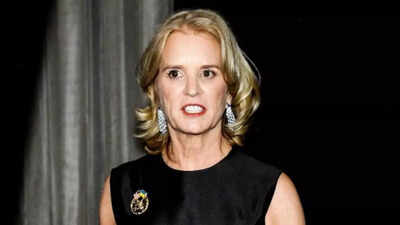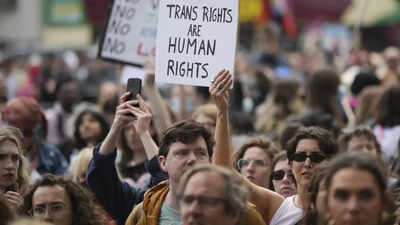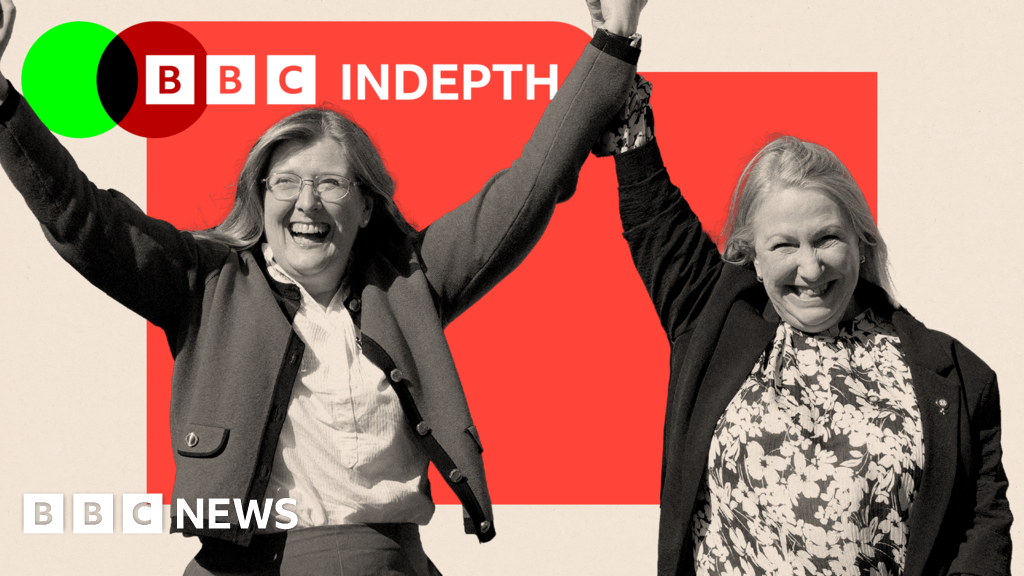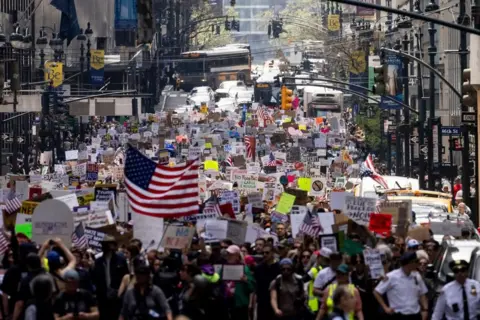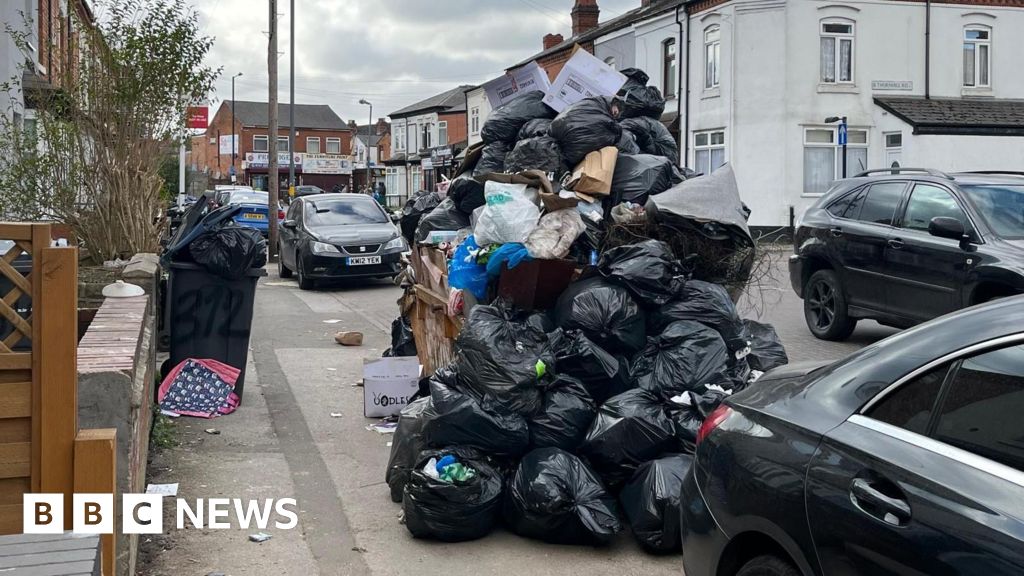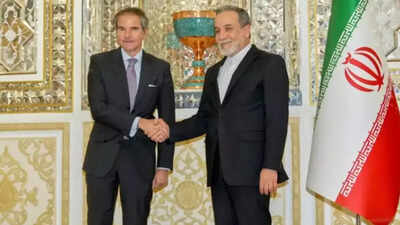Ecuador's President Daniel Noboa Seeks U.S. Security Alliance Amidst Rising Crime Rates
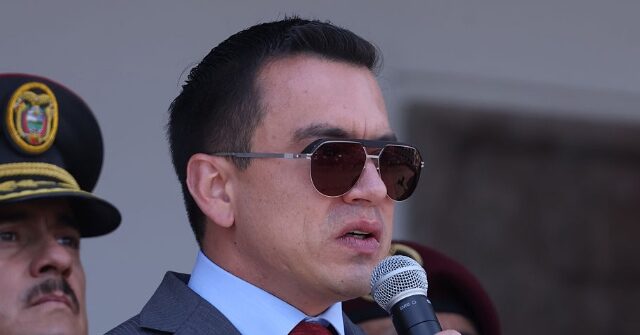
On Tuesday, President Daniel Noboa of Ecuador, who was recently reelected for a second term on Sunday, reaffirmed his ambition to forge a security alliance with U.S. President Donald Trump. Noboa stated that he is seeking "real help" from the United States to combat the escalating crime rates affecting Ecuador, particularly due to violent gang activity and drug trafficking.
Noboa, at just 37 years old, is notably the youngest president in Ecuadors history. He secured his position by defeating the established socialist candidate, Luisa Gonzlez, in the presidential runoff election by an 11-point margin. His new four-year term is set to commence on May 24.
The newly reelected president first took office in November 2023 to complete the remaining term of Guillermo Lasso, his conservative predecessor. Initially, Noboa positioned himself as a center-left leader, emphasizing his commitment to addressing the severe issues of gang violence and narcotrafficking plaguing the nation. In light of these challenges, he has expressed a desire for assistance from the United States following Trumps return to office.
In an interview with CNN Espaol, Noboa articulated his openness to receiving support from foreign security forces, stating, We need it. He clarified that, while U.S. troops would not be patrolling Ecuadorian streets, they could assist in supporting the countrys security operations. This arrangement aligns with a broader strategy to enhance Ecuador's capabilities in addressing security threats.
Noboa went on to discuss the possibility of establishing a joint military base with the United States in Ecuador. However, he emphasized that all security operations would ultimately be under the command of Ecuadors own military and police forces. We would like to cooperate with U.S. forces, and I think there are many ways to do that, especially in tracking illegal operations moving out of Ecuador. But the control of the operations will be in the hands of our military and our police, he asserted.
Before the recent election, Noboa had traveled to the United States and met with President Trump at his Mar-a-Lago estate in Florida. Reports suggest that the two leaders shared a positive and enjoyable meeting, during which Noboa sought U.S. military cooperation to tackle drug trafficking. Post-meeting, Noboa noted that Trump seemed supportive of Ecuador's efforts against narcoterrorism.
In a congratulatory message posted on Truth Social, President Trump acknowledged Noboas reelection, stating, Congratulations to Daniel Noboa, who will be a great leader for the wonderful people of Ecuador. He will not let you down!
During the CNN interview, Noboa confirmed that discussions regarding a cooperative plan with the U.S. have taken place. This plan includes support for intelligence systems, border protection, monitoring drug trafficking, and assistance in combatting illegal fishing and mining operations. Noboa expressed optimism that Ecuador is well-positioned to receive substantial aid packages from the United States, particularly as the election period has concluded.
One significant hurdle remains: Ecuador's constitution, which was enacted in 2008 during the presidency of Rafael Correa, a socialist leader now a fugitive convicted felon, explicitly prohibits the establishment of foreign military bases. Noboa has publicly called for constitutional reforms to lift these restrictions.
CNN Espaol reported that Ecuador is preparing for the potential arrival of U.S. forces through the construction of a new naval base in the coastal city of Manta, which previously hosted U.S. military personnel from 1999 until 2009.
Noboa also made it clear during the interview that his governance style differs from that of other young leaders in the Americas, such as El Salvadors Nayib Bukele and Argentinas Javier Milei. He emphasized, Everyone has their own style. They are different people. They are not similar projects.
In addition to discussing security cooperation, Noboa addressed the issue of U.S. tariffs, asserting that his administration seeks a policy of tariff reciprocity. He noted that Ecuador has reduced tariffs on American automobiles and machinery, which previously ranged from 35 to 40 percent, down to approximately ten percent.
When questioned about the fairness of the ten percent tariffs imposed on Ecuador, Noboa explained that this rate is consistent with tariffs applied to many other Latin American countries. He pointed out that Ecuadors competitors faced an even more challenging situation, as many lacked tariffs until recently.
Our competitors, many of them did not have tariffs. They had free trade agreements. Our competitors, in our five main export products, do not have it better than us, he stated, highlighting that, for example, countries like Vietnam, Indonesia, and Thailand could still present challenges in the fishing and shrimp export sectors, vital to Ecuadors economy.
The insights offered by Noboa underline the complex political landscape of Ecuador as it seeks to navigate domestic security challenges while fostering international cooperation, particularly with the United States. His administration seems poised to tackle pressing issues with a focus on both national sovereignty and global partnerships.
Christian K. Caruzo is a Venezuelan writer who documents life under socialism. Follow him on Twitter for more insights.










